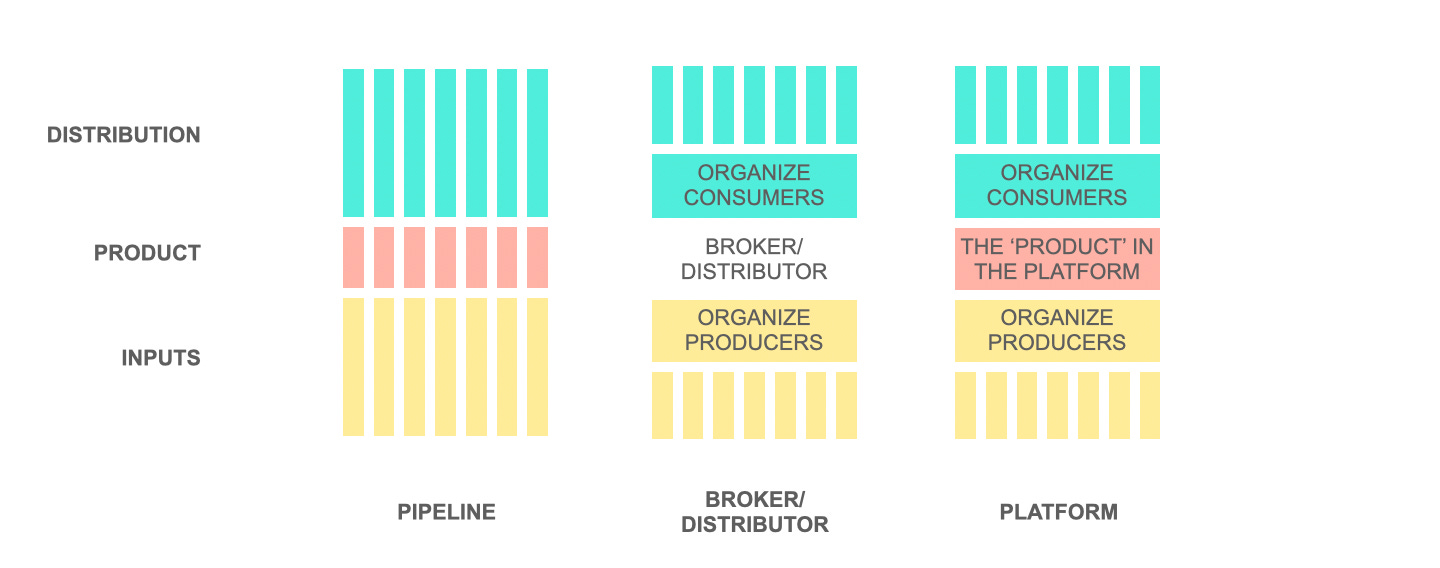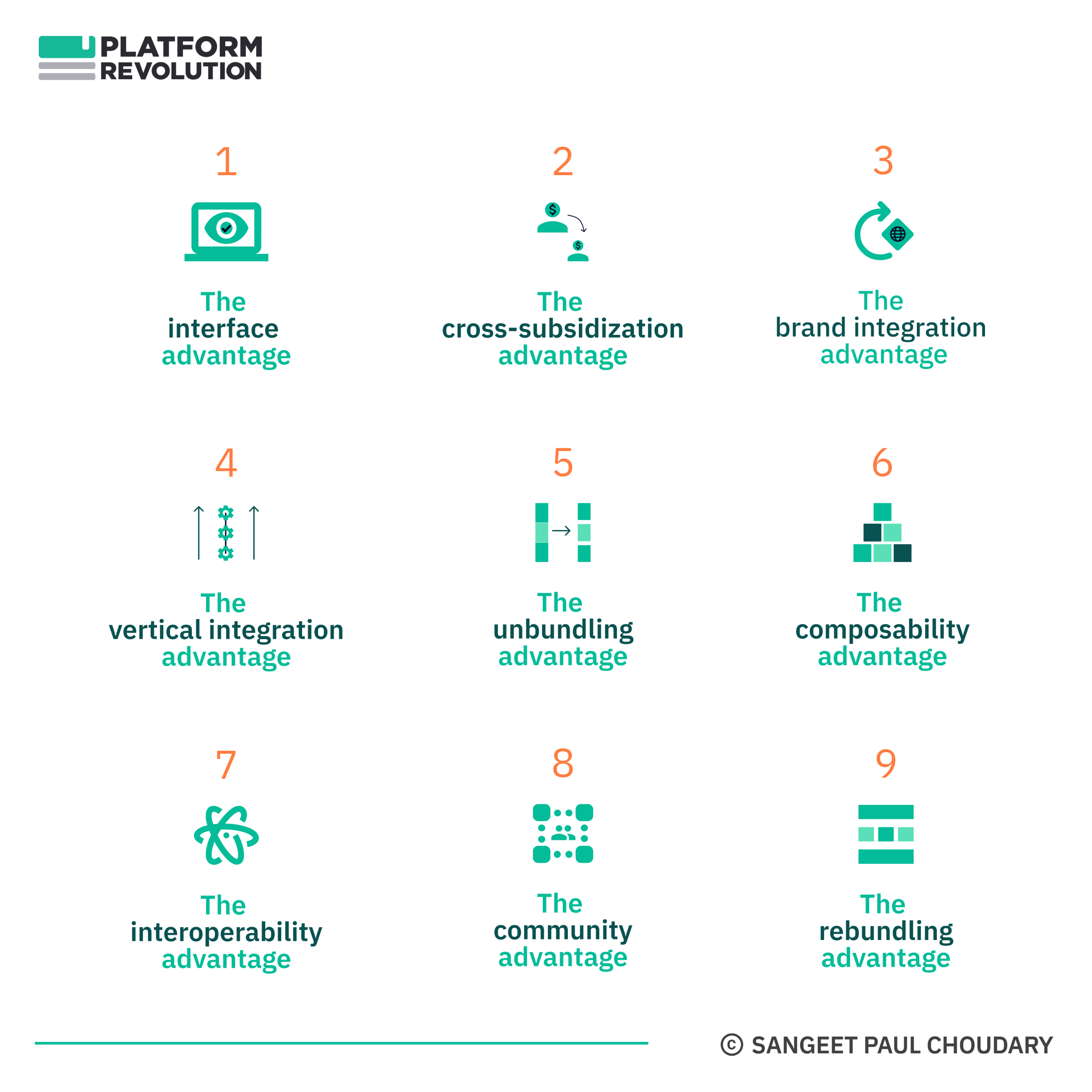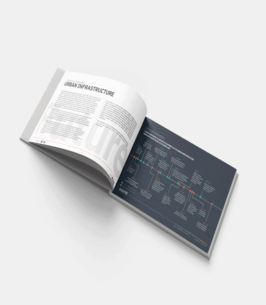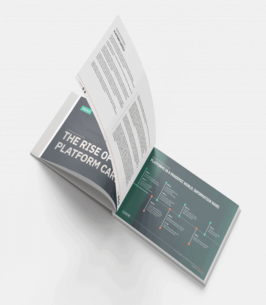Strategy
The case against the Sharing Economy
The Sharing Economy: Shaping the Future of Work.
A whole slew of labor platforms has come up over the last couple of years, powering what is widely referred to as the Gig Economy or (rather inappropriately) the Sharing Economy. Remote freelancing (Freelancer, Upwork) and micro-tasking (Amazon Mechanical Turk) platforms have been around for quite some time, as have classifieds (e.g. Craigslist), all of which enable service providers to find new gigs. But a whole new range of vertical-specific platforms have come up in recent times creating two broad classes of new opportunities:
- Higher end gigs: Consulting platforms like Clarity and Experfy now enable highly skilled individuals to find gigs on platforms.
- Real world gig coordination: Platforms like Homejoy and Postmates allow people with spare time to find a new source of income in the ‘real’ world.
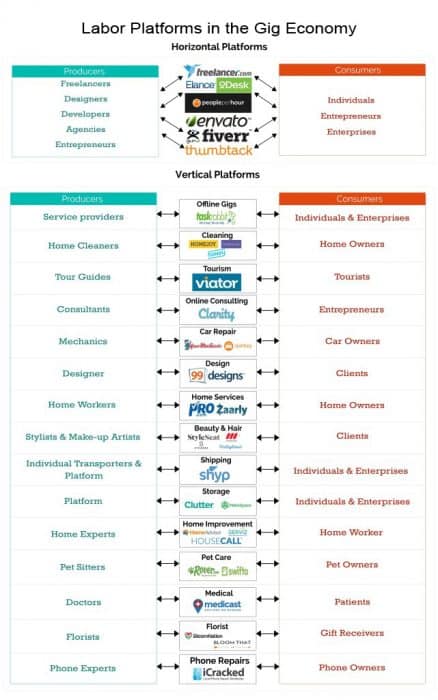
In the heels of growing unemployment, the promise of platforms to power new job creation is met with a lot of enthusiasm. However, we’re still not at a place where freelancing platforms, of their own, can credibly provide an alternate to jobs.
The future of job creation isn’t simply about matching supply and demand.
The ‘Gig Economy’ isn’t saving anyone… yet
Labor platforms that enable service providers to find new opportunities have led to a comprehensive unbundling of the traditional job. A job isn’t simply the summation of many different gigs. Stability, social contact, and healthcare are other aspects of work that none of the existing online labor platforms offer to their service providers.
Producer Economics
All platforms have associated costs and benefits. To enable producers to actively participate on the platform, the platform must ensure that benefits far outweigh the costs and are higher than that on alternative channels. This applies to all platforms. Writers on Medium understand that the benefits of writing on Medium far exceed that of writing on other platforms. Also, the relatively easier interface (as compared to other blogging platforms), ensures that writers have to incur fewer costs.
While producer economics is an important consideration for all platforms, it’s an even more important consideration for labor platforms. Unlike Medium, where many writers may write purely for expression and discussion, service providers on labor platforms derive a source of income and depend on these platforms for a living.
Airbnb and Uber realized this as they moved forward. While neither offered comprehensive insurance to hosts and drivers initially, their insurance cover – today – encourages producers to participate by reducing potential costs. An Uber driver in San Francisco, who had, unfortunately, run over a six year old, was refused insurance as he didn’t have an active Uber ride going on at the time of the accident. In the confusion that ensued, Uber had to redraft its policies to cover all events when the driver was available on the Uber platform, irrespective of whether he had an active ride going on.
The examples of Airbnb and Uber demonstrate that as jobs become unbundled in an age of platforms, the associated benefits that came bundled with a steady, regular job cannot always be unbundled and offered piecemeal.
An increasing number of labor platforms, today, are employing contract laborers to power the supply side. They do not enjoy the benefits of full-time employment. To encourage them to participate on platforms on a sustainable basis, the platform owners need to move beyond acting like matching engines and understand the costs and benefits involved in producers participating on these platforms.
The sharing economy needs to be more than just matchmaking
Feel Free to Share
Download
Download Our Insights Pack!
- Get more insights into how companies apply platform strategies
- Get early access to implementation criteria
- Get the latest on macro trends and practical frameworks
Implications
This has two important implications.
First, every platform player should lay out all costs and benefits involved in producers participating on the platform. These fall into three broad categories:
- Risk management: Platforms need to ensure that producers that are investing in the platform have capped costs of participation. This means that producers need to be insured against transaction risks. Transaction risks are especially high on open and relatively decentralized systems. Platforms need to ensure that all such risks are covered and that the costs of participation have an upper cap.
- Learning and Improvement: Platforms need to ensure that producers constantly improve their ability to reap more benefits from the platform. This, in turn, involves community management measures that involve the sharing of best practices, an example being Airbnb’s community management programs with hosts. Platforms may also bake the learning loops into a schedule of notifications and workflows that gradually encourage producers towards actions that are likely to help them reap higher rewards.
- Well-being: Finally, platforms need to ensure that they guarantee well-being for producers in a manner similar to that in traditional organizations.
The final imperative is particularly challenging. Unlike traditional organizations, workers may not be contractually tied to only one platform. Most workers may, in fact, multi-home – i.e. simultaneously participate – on multiple platforms. This makes Uber’s stand on piecemeal insurance understandable, given that drivers, themselves, participate on Uber, Lyft, and multiple platforms.
Given this multi-homing, a single platform cannot feasibly guarantee well-being. As a result, the platform economy needs to develop horizontal infrastructural services that guarantee producer well-being across multiple platforms.
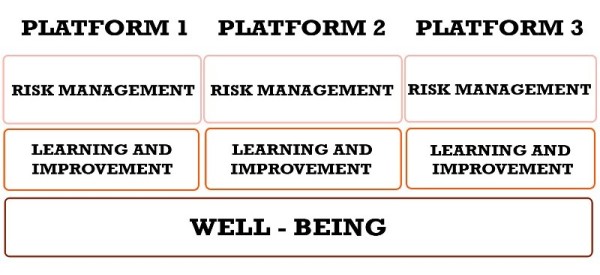
We are already seeing the emergence of such horizontal initiatives.
- Peers.org is powering the counterpart of labor unions for the platform economy.
- Sherpasphere and other similar players are powering better job discovery and management.
- Affordable healthcare guarantees for a platform economy continue to be elusive.
- Traditional insurance, also, hasn’t evolved to cater to an age of platforms, but there are considerable opportunities for insurance companies to develop horizontal insurance products catering directly to service providers participating across multiple platforms. Today, insurance companies provide insurance cover for individual platforms. Financial services still favor the steadily employed. The freelancer economy may need an insurance provider purely suited for this purpose.
- Finally, as jobs get unbundled even further, these multi-homing service providers will need greater back office support. Most freelancers on labor platforms today are contract employees. They have unique work management and taxation issues. Services like 1099.is, TryZen99 and UseBenny have emerged to address this but there are many more opportunities to provide greater infrastructural support to this emerging economy.
The future of labor in the platform economy
The future of job creation isn’t just about matching supply to demand but about providing the entire infrastructure that enables producers to reliably find a better substitute than traditional job alternatives. To enable this, platforms should ensure favorable producer participation economics. In particular, non-platform players need to emerge to provide infrastructural services across multiple platforms.
Thanks to Charis Rafailidis for helping draft the post.
TWEETABLE TAKEAWAYS
The case against the sharing economy Share this
The sharing economy needs to be more than just matchmaking Share this
State of the Platform Revolution
The State of the Platform Revolution report covers the key themes in the platform economy in the aftermath of the Covid-19 pandemic.
This annual report, based on Sangeet’s international best-selling book Platform Revolution, highlights the key themes shaping the future of value creation and power structures in the platform economy.
Themes covered in this report have been presented at multiple Fortune 500 board meetings, C-level conclaves, international summits, and policy roundtables.
Subscribe to Our Newsletter




